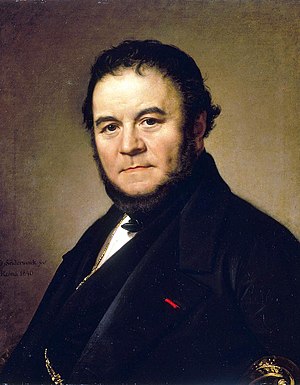“Beauty is the promise of happiness.”
The British phlegm, on such a journey, did not always serve as a
convenient mask; the flattering, timid glance, the ripple of the tender
whispers, and the furtive touching of fingers beneath the table, made
even these English couples a part of the great human marrying family;
their superiority to their fellows would return, doubtless, when the
honey had dried out of their moon. The best of our adventures into this
tender country were with the French bridal tourists; they were certain
to be delightfully human. As we had had occasion to remark before, they
were off, like ourselves, on a little voyage of discovery; they had
come to make acquaintance with the being to whom they were mated for
life. Various degrees of progress could be read in the air and manner
of the hearty young _bourgeoises_ and their paler or even ruddier
partners, as they crunched their bread or sipped their thin wine. Some
had only entered as yet upon the path of inquiry; others had already
passed the mile-stone of criticism; and still others had left the earth
and were floating in full azure of intoxication. Of the many wedding
parties that sat down to breakfast, we soon made the commonplace
discovery that the more plebeian the company, the more certain-orbed
appeared to be the promise of happiness.
Some of the peasant weddings were noisy, boisterous performances; but
how gay were the brides, and how bloated with joy the hardy,
knotty-handied grooms! These peasant wedding guests all bore a striking
family likeness; they might easily all have been brothers and sisters,
whether they had come from the fields near Pontorson, or Cancale, or
Dol, or St. Malo. The older the women, the prettier and the more
gossamer were the caps; but the younger maidens were always delightful
to look upon, such was the ripe vigor of their frames, and the liquid
softness of eyes that, like animals, were used to wide sunlit fields
and to great skies full of light. The bride, in her brand-new stuff
gown, with a bonnet that recalled the bridal wreath only just laid
aside, was also certain to be of a general universal type with the
broad hips, wide waist, muscular limbs, and the melting sweetness of
lips and eyes that only abundant health and a rich animalism of nature
bring to maidenhood.
Madame Poulard's air with this, her world, was as full of tact as with
the tourists.
“The pleasures of love are always in proportion to our fears”
* * * * *
So you see inconstancy is good:
"Il me faut du nouveau, n'en fût-il plus au monde."[13]
Very well, I reply, you make light of oaths and justice, and what can
you look for in inconstancy? Pleasure apparently.
But the pleasure to be got from a pretty woman, desired a fortnight and
loved three months, is different from the pleasure to be found in a
mistress, desired three years and loved ten.
If I do not insert the word "always" the reason is that I have been
told old age, by altering our organs, renders us incapable of loving;
myself, I don't believe it. When your mistress has become your intimate
friend, she can give you new pleasures, the pleasures of old age. 'Tis
a flower that, after it has been a rose in the morning--the season of
flowers--becomes a delicious fruit in the evening, when the roses are
no longer in season.[14]
A mistress desired three years is really a mistress in every sense of
the word; you cannot approach her without trembling; and let me tell
the Don Juans that a man who trembles is not bored. The pleasures of
love are always in proportion to our fear.
The evil of inconstancy is weariness; the evil of passion is despair
and death. The cases of despair are noted and become legend. No one
pays attention to the
[Pg 264]
weary old libertines dying of boredom, with whom the streets of Paris
are lined.
"Love blows out more brains than boredom." I have no doubt of it:
boredom robs a man of everything, even the courage to kill himself.
There is a certain type of character which can find pleasure only in
variety. A man who cries up Champagne at the expense of Bordeaux is
only saying, with more or less eloquence: "I prefer Champagne."
Each of these wines has its partisans, and they are all right, so
long as they quite understand themselves, and run after the kind of
happiness best suited to their organs[15] and their habits. What ruins
the case for inconstancy is that all fools range themselves on that
side from lack of courage.
But after all, everyone, if he will take the trouble to look into
himself, has his ideal, and there always seems to me something a little
ridiculous in wanting to convert your neighbour.
